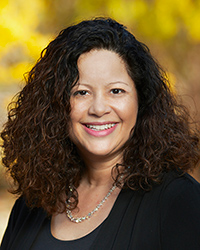Rachel J. Anderson

What's the most important thing you are working on right now?
I am currently working on an International Business Transactions textbook for Wolters Kluwer tentatively titled, “Business Around the World: International, Transnational, and Comparative Law.” It is designed to familiarize students with key issues in international, transnational, and comparative law. This textbook incorporates explicit learning outcomes and emphasizes experiential learning opportunities. It includes exercises that I developed over my past ten years teaching at the William S. Boyd School of Law. Some of the exercises are particularly meaningful to me because I developed them together with my mentor Douglas Nordlinger, with whom I had the privilege to work with in London at Skadden, Arps, Slate, Meagher & Flom (UK) LLP.
What is the most significant issue facing your field and how should it be addressed?
In addition to the ongoing changes connected to globalization and advances in technology, political fluctuations can have significant effects on the regulatory and risk environment in which business is transacted that has cross-border components or effects. From the business side, keeping up with potential and current changes in regulations is an important part of identifying and mitigating potential risks in cross-border transactions. From the government perspective, staying abreast of technological changes and regulatory arbitrage is an important part of designing laws and regulations that achieve their intended goals. Comparative law provides an important approach that promotes a better understanding of foreign legal systems and a deeper understanding of one’s own legal system.
Which of your recent books or articles should I read?
I suggest my article entitled “Inattentional Blindnesss: Psychological Barriers Between Legal Mandates and Progress Toward Workplace Gender Equality” in the Santa Clara Journal of International Law. Inattentional blindness is a psychological theory that essentially says that people often do not see or hear things that they are not expecting. I argue that this phenomenon can explain why two people can experience the same event but see or hear very different things. In my article, I posit that this may help to explain why people in different demographic groups, for example, women and men, may report different perceptions of behavior or fairness in the workplace. I think that this theory makes it possible to imagine the possibility of another person being present for the same experience but remembering it very differently without imputing willful ignorance or nefarious intent. That in turn, I believe, allows us to approach difficult issues in a way that often can result in finding common ground.
How does your research and scholarship influence your teaching and service and vice versa?
For me, the three are inextricably intertwined. Scholarship is a space that allows me to work through the approaches to and intricacies of an issue. Teaching is an opportunity to share that knowledge with others and engage in a substantive discussion with others that often leads to new insights. My service on campus and off is an opportunity to put theory into action and to identify issues that could benefit from scholarly theorizing. For me, each of these aspects of being a professor enriches and enhances the others.
What is it about being a law school professor that inspires or motivates you?
The many different ways you can contribute to society. We come into contact with so many different people who are involved in many different issues and industries. That gives us the opportunity to make a difference in a lot of ways from each individual person we meet, to the people whose lives our students will touch as legal practitioners, to our scholarship that can help inform and improve society’s structures and all types of economic activity.